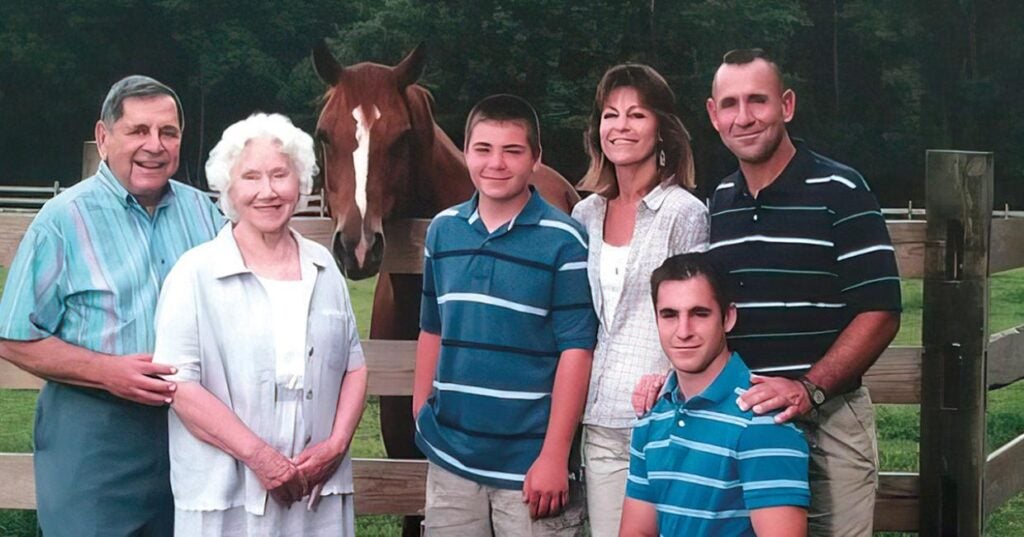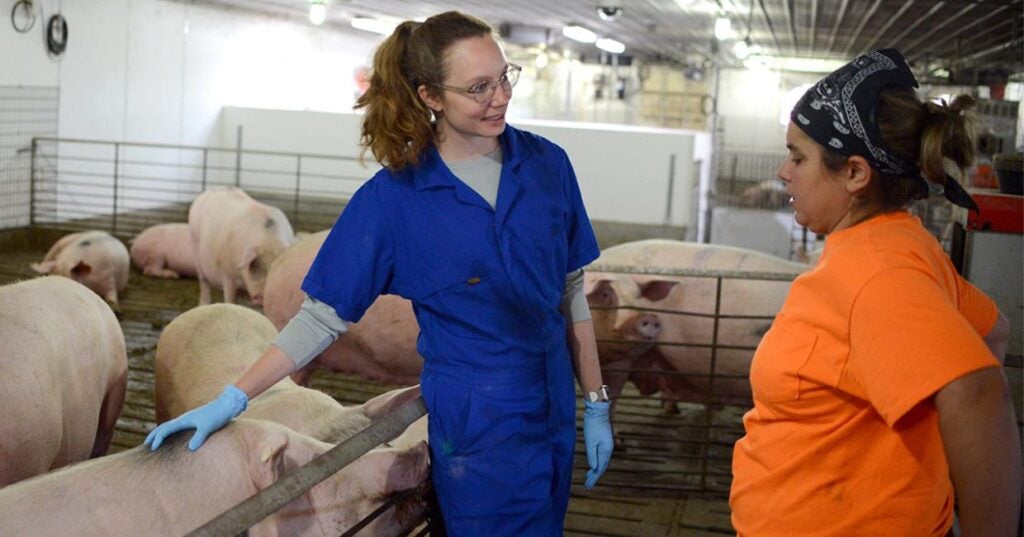Morgan Agnew, V’13: The Rewards of Small Animal Reproductive Care
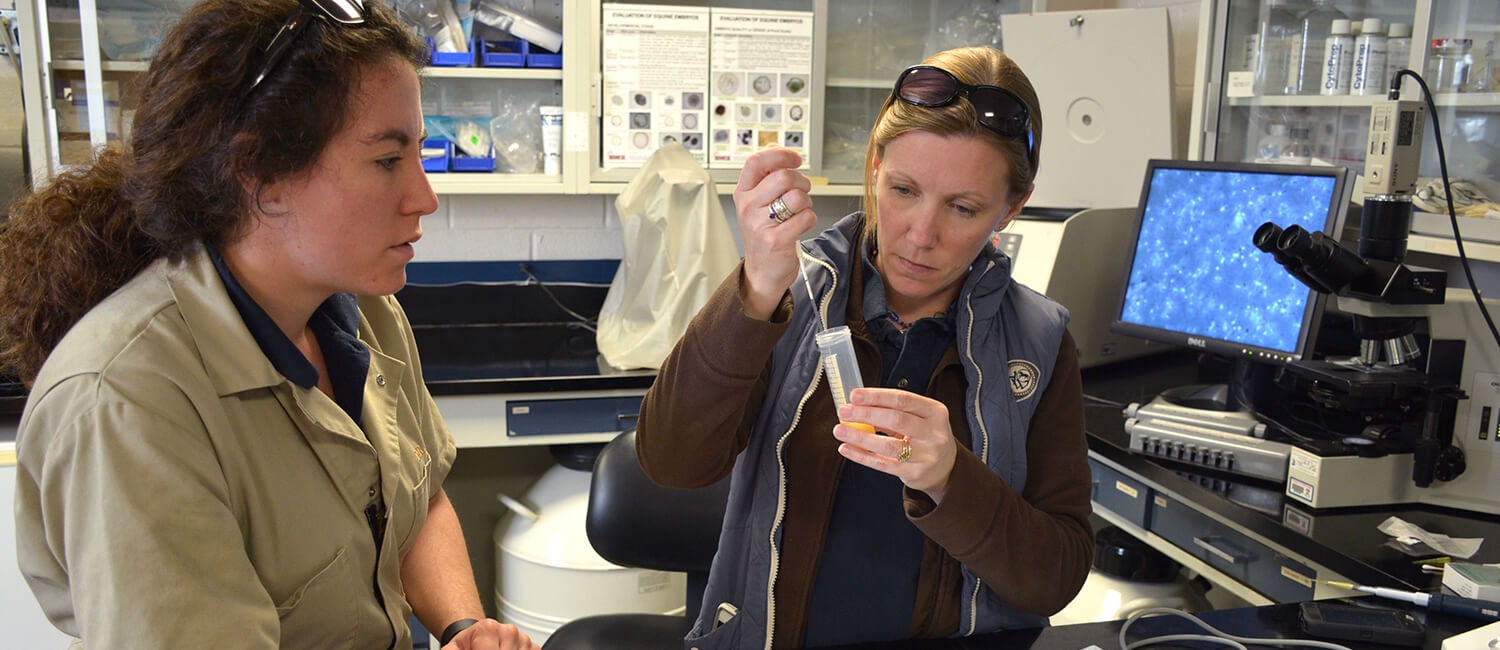
In what is arguably the world’s best job, Dr. Morgan Agnew spends her workdays with puppies or planning for their arrival.
The theriogenologist – a specialist in veterinary reproduction — runs Agnew Veterinary Reproductive Services (AVRS) in partnership with Philadelphia Animal Hospital (owned by Lawrence A. Rebbecchi Jr., V’90).

the rewards are puppy cuddles.
“My work is 80% reproduction — examining dogs to determine optimal breeding timing, collecting and freezing semen, assisting with whelping or performing C-sections, conducting trans-cervical inseminations or infertility workups, and examining litters,” said Agnew. “The other 20% is primary care. Every day is different.”
Her day-to-day cases may vary, but every day Agnew is focused on providing breeders with responsible reproductive plans and services. “AVRS’s offers quality small animal reproductive care in the Philadelphia region for people who want to breed the best dogs possible,” she said.
While the breeding world’s bad players tend to capture the headlines, Agnew counters a “breeding is bad” narrative with responsible breeding that clients value for multiple purposes.
“There is very much a place for both adopting and breeding,” said Agnew, who has a rescue dog named Fiona. “Adopting a dog saves the life of a homeless animal and is so rewarding – I love Fiona and think she is the best dog ever — and getting a dog from a responsible breeder may be a better choice for people looking for a specific temperament or personality.”
She added that many of her clients breed and raise dogs for service, sport, or show.
“All my clients are very much stewards of the types of dogs they love. They care a lot about the health and welfare of the individual dogs in their care and want the safest reproductive care available.”
Honing a Calling
Puppies weren’t always Agnew’s veterinary purview, although she’s always been drawn to veterinary reproduction and “the beginnings of life.”
The Philadelphia-area native graduated from Virginia Tech with a dual degree in biology and animal and poultry science. She then earned a VMD at Penn Vet. After graduating, she worked for two years at Rood and Riddle Equine Hospital in Kentucky, where she provided ambulatory care for foals, yearlings, and pregnant mares. She then returned to Penn Vet for a two-year Residency in Large Animal Theriogenology.
As a resident, Agnew was part of one of the nation’s leading large animal reproduction services — Penn Vet’s Georgia and Philip Hofmann Center for Animal Reproduction.
“The caseload was tremendous, and I count many of my mentors — Drs. [Tamara] Dobbie, [Patricia] Sertich, and [Regina] Turner — as friends today,” she said.
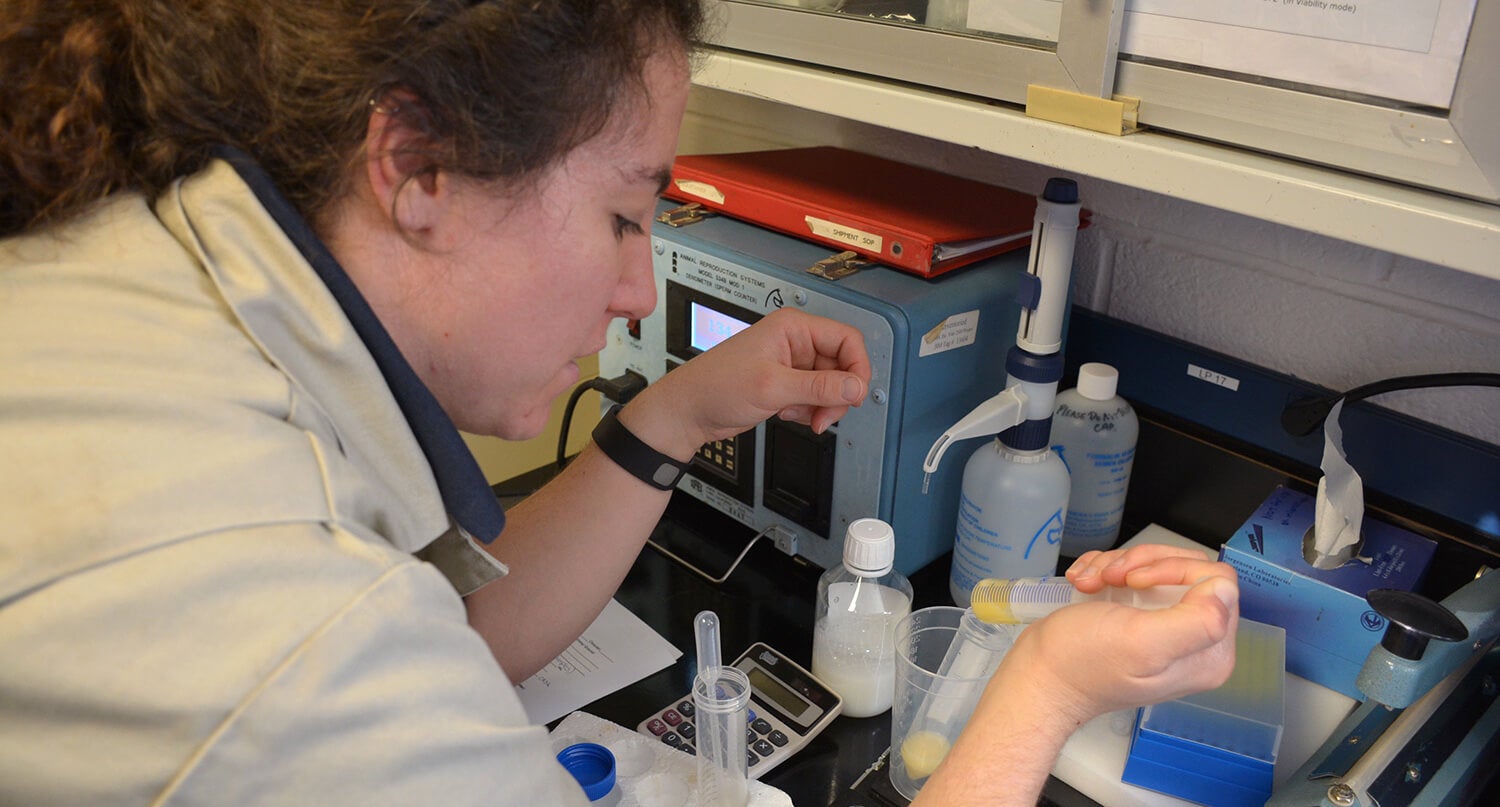
Although Agnew expected a career with horses, she became increasingly attracted to small animal reproduction while working in a small animal practice during the residency.
“I found small animal reproduction to be much like equine,” she said. “I really liked working with dogs and the mix of general practice and reproductive specialty work, so I gravitated to smaller animals.”
She spent time learning from Ryan Hospital’s Medical Genetics and Pediatrics team once she became interested in small animal reproductive care.
“It’s not what I initially envisioned for my career, but I changed my path to be happy and fulfilled, something I encourage younger veterinarians to always be receptive to doing.”
The Business of Gestation
Agnew is now board certified in theriogenology by the American College of Theriogenologists and a member of the Society for Theriogenology, an organization dedicated to promoting standards of excellence in animal reproductive medicine.
She and Rebbecchi started in 2019 and have built a loyal and steady client base over the past three years.
“Business has boomed since the beginning of the pandemic. A lot of smaller practices closed up shop because of the pandemic, or they’ve been so inundated with cases they refer people to me,” she said. “It’s been really, really busy.”
Agnew loves every minute, especially meeting the puppies she helped nurture to life: “When I’ve done the breeding and a client then brings the puppies to see me. . . it’s just so great and rewarding!”
That’s a lot of puppies when you figure Agnew helps 150 to 200 dogs annually through all or some phase of breeding.
A Rewarding Challenge
As satisfying as it is to see healthy dogs have healthy litters, she warns that reproductive medicine is not for veterinarians wanting predictability.
“It’s hard to have a set schedule,” said Agnew, who lives with her husband, toddler, and Fiona outside Philadelphia. “If a dog is ready to breed on a weekend, that’s when it must happen, even if I’ve just worked Monday to Friday. And being the solo therio person at the practice makes keeping up with individual appointments a challenge.”
It’s the best kind of challenge. “Some of my best clients are breeding Labrador Retrievers or Golden Retrievers for service dogs and working dogs. To know where those puppies are going, and to know that I helped to make it happen, is really cool.”
More from Bellwether
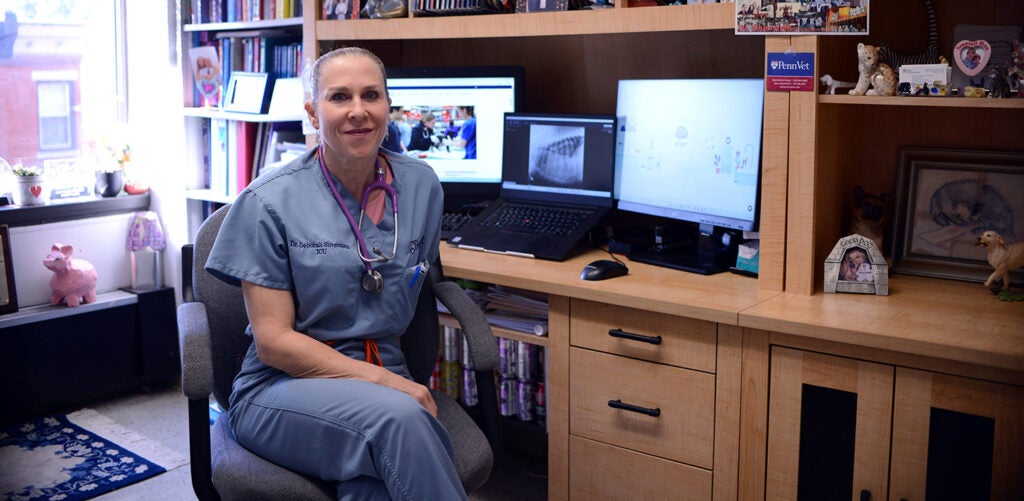
In the Office with Dr. Deborah Silverstein
Get to know Professor of Emergency & Critical Care Deborah Silverstein.
